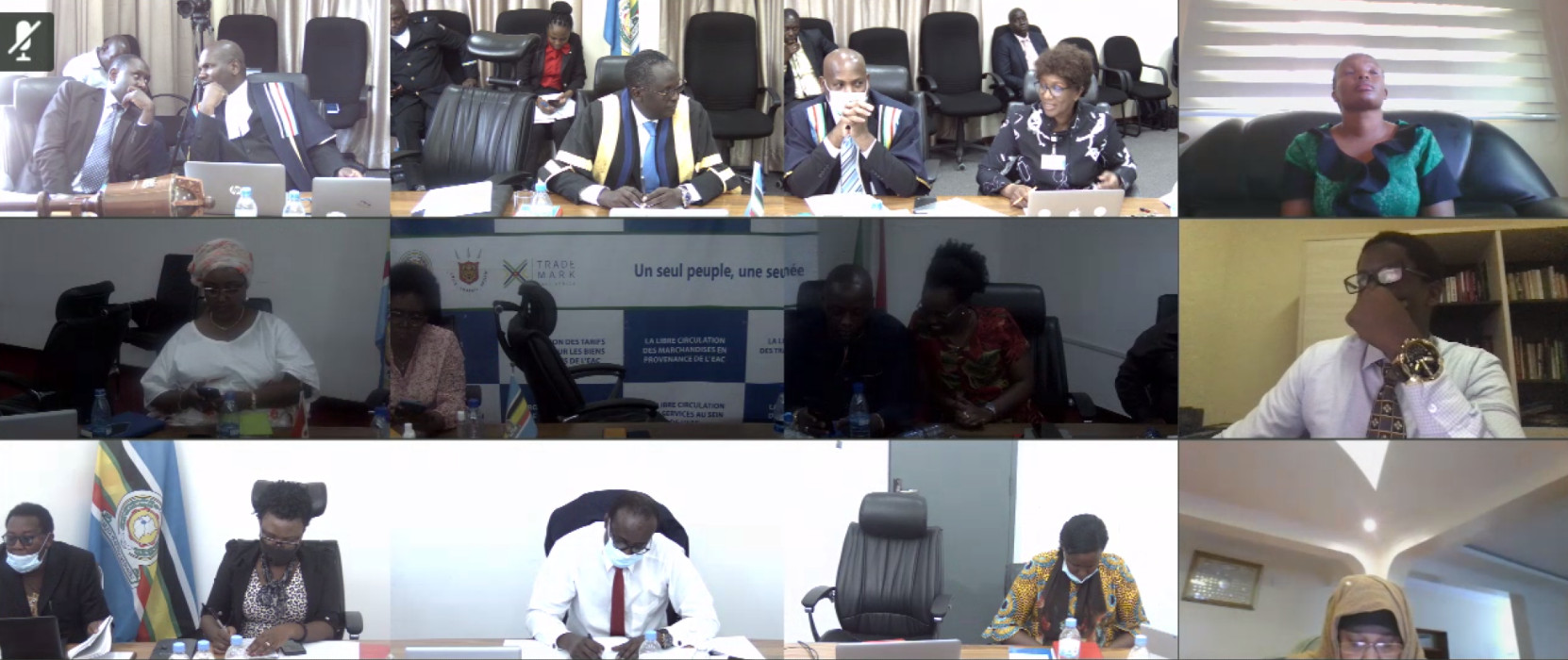
Livestock Bill in the Offing
…as Hon Dr Woda J Odok granted leave to introduce key Bill
East African Legislative Assembly, Arusha, Tanzania: November 24th 2020: EALA Member, Hon Dr Woda Jeremiah Odok, has been granted leave to introduce an EAC Livestock Bill 2020, to provide for the transboundary movement of livestock and control of animal diseases within the bloc.
The envisaged EAC Livestock Bill 2020, is to grant a coordinated identification, characterization, mapping and enumeration of livestock. It also seeks to strengthen the detection, prevention and control of transboundary animal diseases. At the same time, the Bill shall provide for a regulatory framework to monitor pastoral ecosystems.
Late yesterday, the Assembly passed the motion tabled by Hon Dr Woda J. Odok, the mover, who said the envisaged Bill would boost the national efforts made by Partner States to mitigate and address the challenges faced by pastoralists and their livestock within their territories.
Hon Dr Odok remarked that outbreaks of transboundary animal diseases cause devastating economic losses to pastoralists and livestock farmers and efforts for the Community to collectively prevent and control such diseases were vital. “Such diseases among other things, cause negative impact on livestock agriculture, trade and food security”, the legislator remarked.
The Member further remarked that numerous challenges continue to adversely affect livelihoods of pastoralists in the Arid and Semi-Arid Lands (ASAL) within the Community, including diminishing access to forage and water resources, pests and diseases.
“The result is the deteriorating impact of natural disaster related to droughts, flooding and increasing levels of destitution. In addition, invasive alien species threaten the drylands, conflicts and rustling, lead to economic and political marginalization”, Hon Dr Odok stated.
Hon Dr Odok said it was necessary for the Community to collectively step-up measures to harmonise and standardize systems for identification and characterization of livestock.
“The above measures as well as surveillance of livestock and wildlife in order to detect, prevent and control transboundary diseases, zoonotic diseases are vital to establish and enhance early warning systems therefore, ensuring rapid detection and control of disease outbreaks”, Hon Dr Woda told the House.
According to the legislator, the Bill will also promote regional peace and security. “The Governments of Kenya and Uganda have continued to promote the cross-border programmes for sustainable peace and socio-economic transformation among the Karamajong of Uganda, the Turukana people and the West Pokot people of Kenya”, Hon Dr Odok said.
The Livestock Bill further anticipates the establishment of a Livestock Fund. The Council shall in accordance with the Financial Rules and Regulations establish a Community Livestock Fund whose funds are to be utilized to:-
(a) facilitate regional and national institutions conducting livestock, wildlife and primate research and vaccine development;
(b) facilitate detection, prevention and control of transboundary animal diseases and zoonotic diseases;
Contributing to the debate, Hon Lemoyan Josephine said the EAC was keen and committed to ensure food security. “The Bill is clearly aligned to a number of protocols for which the community is implementing. With implementation of protocols (Customs Union and Common Market), we have increased movement of people and goods. We need harmonization of issues around livestock sector”, she said. “It will promote issues on enhancement of livelihoods which therefore will enhance impact of socio-economic livelihoods on the citizens”, the legislator added.
Hon Kasamba Mathias said livestock accounted for close to 40% of the Gross Domestic Product of the EAC Partner States. “You hardly get any Partner State without livestock. If well-coordinated, integrated investment of the industry can create enhanced livelihood”, he said. Hon Kasamba further called on Partner States to amplify the issue of livestock movement, across borders and said the aspect of exchange of cross border products, be handled within aspects of free movement of persons and goods, as well as, under the harmonized aspects of preventing diseases.
Hon Wanjiku Muhia said the livestock sector was a key contributor to employment and economic development of the region. The legislator urged Council of Ministers to support the Bill, saying consensus was necessary to ensure its eventual assent.
Hon Amb Ndangiza Fatuma said the Bill touched on agriculture and food security which was a fundamental tenet of the Treaty for the establishment of the EAC. “Our people depend on agriculture and livestock – even though the sector is one that is stricken by poverty. It further goes a long way in promoting peace and security, by putting in place the necessary framework to contain rustling among other areas,” Hon Amb Ndangiza stated.
For more information, please contact:
Bobi Odiko
Senior Public Relations Officer
East African Legislative Assembly
Arusha, Tanzania
Tel: +255-27-2508240
Fax: +255-27-2503103
Cell: +255-787-870945, +254-733-718036
Email: BOdiko [at] eachq.org
Web: www.eala.org
About the East African Legislative Assembly
The East African Legislative Assembly is the Legislative Organ of the East African Community. Its Membership consists of a total of 62, of whom 54 are elected Members (9 from each Partner State) and eight ex-officio members (the Ministers responsible for EAC Affairs from the Partner States, the Secretary General of the Community and the Counsel to the Community).
The East African Legislative Assembly has legislative functions as well as oversight of all East African Community matters. The enactment of legislation of the Community is put in effect by means of Bills passed by the Assembly and assented to by the Heads of State, and every Bill that has been duly passed and assented to become an Act of the Community and takes precedent over similar legislations in the Partner States. EALA has to date passed over 80 pieces of legislation.
Tags: EALA
